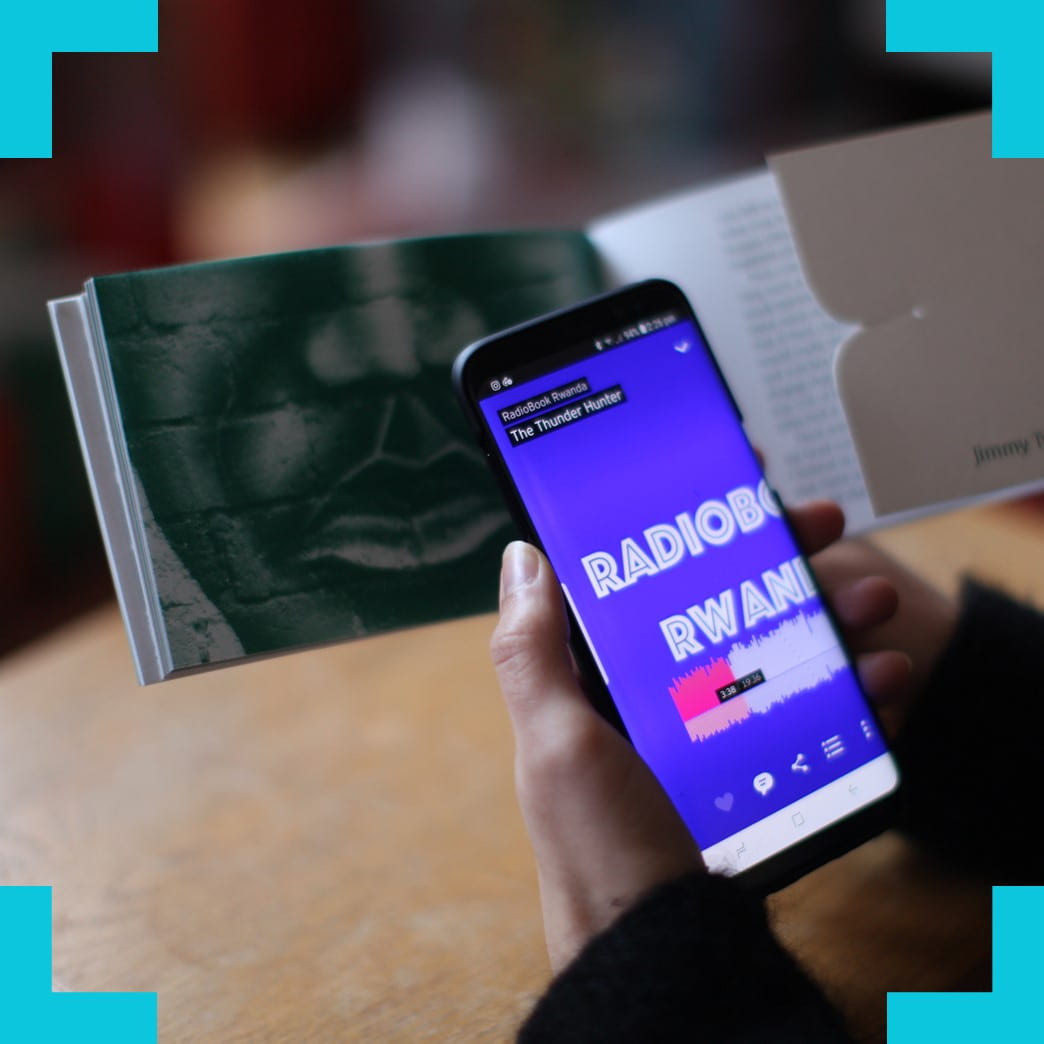Narratives and the Grapevine: New modes for literature and storytelling
How can you source and generate content from languages and stories underserved by the wider publishing industry? This project seeks to explore if multimedia distribution can democratise access to literature and develop a digital literacy that effectively supports social inclusion.

Emphasis in publishing is on European languages. This means that languages and language communities are dying out. The majority of African literature isn’t read in local communities due to a lack of infrastructure for literary translation in local languages, non-standard lingua franca such as pidgin and Camfranglais. It is vital to have stories in languages to maintain and archive them.
What did the project involve?
This project sought to contribute to research into language preservation and publishing literature in non-standardised languages. It will also contribute to research that aims to improve digital literacy and data awareness in Brazil. In the 2018 elections in Brazil, about 90% of those who voted for the far right candidate Jair Bolsonaro (most being among the poorest in the population) were influenced by targeted misinformation distributed through social media. With smartphone ownership increasing, it has become clear that the focus of digital inclusion initiatives needs to shift from access to technologies to critical media and data literacy.
Through a series of workshops in Bristol, Brazil and Cameroon, the project experimented with multimedia production and distribution in order to test the effectiveness and creativity of storytelling when delivered through Grapevine. Grapevine software connects print media to digital audio and sends you a short audio story, via WhatsApp.
Research questions this project sought to answer include:
Can the use of multimedia distribution democratise access to African literature? Or facilitate the dissemination of literature written or translated into languages without standard spelling systems?
How might multimedia narrative encourage the development of a digital literacy that effectively supports social inclusion?
What forms of media do artists in the three places make to suit Grapevine’s print and WhatsApp-based delivery mechanisms?
Who are the team and what do they bring?
- Edward King (Hispanic, Portuguese and Latin American Studies, University of Bristol) is a cultural theorist working on contemporary digital, visual and literary cultures. His research explores contemporary cultures of connectivity, with a particular focus on the use of speculative fiction and multi-media texts, from comics to artists’ books, to expose and contest the shifting power dynamics of the digital age.
- Madhu Krishnan (English, University of Bristol) brings her research into the gap between production, dissemination and reception in African literatures. In her own research she has written about the chasm between local markets, literary ecologies and the global circulation of African literature.
- Grapevine Media, co-director Tim Kindberg, brings experience of digital R&D and product development. Co-director Lily Green, brings experience of multimedia productions that combine print, audio and community.
What were the results?
The research team created an engagement process. They worked with artists in three locations to create new printed artefacts and audio stories connected by Grapevine and shared over WhatsApp. They observed the processes of engagement and creation from the perspectives of their different disciplines and intersecting research questions. They began the process in Bristol and, using what they have learned, and repeated it, via local intermediaries, in Yaounde, Cameroon and São Paulo, Brazil.
A detailed blog on the research process and outcomes was written by Tim Kindberg entitled Narratives and the Grapevine an excerpt from it outlines the extended effect of the project’s outcomes:
“This project has been a fantastic experience for all of us in multinational, multicultural research – especially since, in conducting it, we transcended the Covid-19 lockdowns that have inhibited us locally. In principle, a global messaging app with two billion users is a good basis for inclusive, global literature dissemination. But we are interested in how to bring this about in practice. For all the questions that remain, we are greatly encouraged by the inputs from the three cities we worked with.
Even though we have been completely “hands-off” since December, Streetsmart Stories and, to a lesser extent, Arrête le Mariage des Enfants, are still circulating in Cameroon and beyond. We have recorded them in Canada, Germany, Denmark, the UK, Ghana and Nigeria. Users in Cameroon occasionally send us feedback via the Grapevine number, without us asking for it. This was received recently, about Streetsmart Stories: “The story is beautiful and I like the sound and feel it comes with it 👌👌”.
Grapevine is now about as popular in Cameroon and India, where another project is using it, as it is in the UK. Multimedia distribution using Grapevine has democratised access to literature, at least to this degree.”

